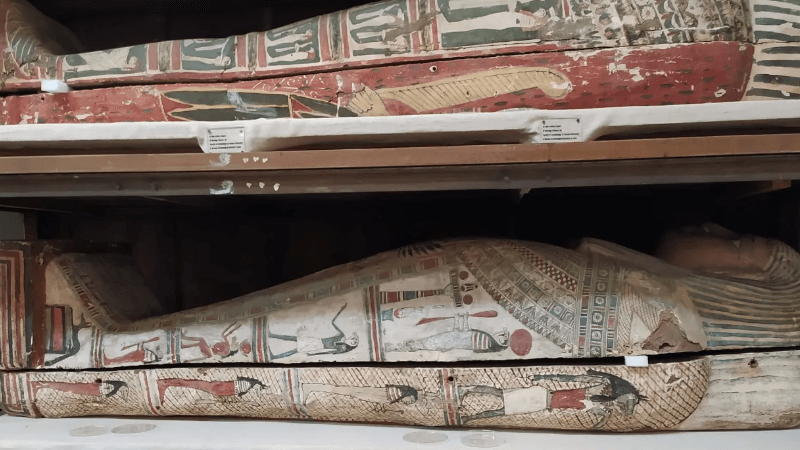Ancient Egyptian Mummies Found to Smell Surprisingly PleasantAncient Egyptian Mummies Found to Smell Surprisingly Pleasant

Scientists made a sweet but unexpected finding about ancient Egyptian mummies: They smell extremely sweet. Scientists at University College London (UCL) and the University of Ljubljana in Slovenia recently determined that well-preserved mummies emit “woody,” “spicy,” and “sweet” aromas rather than a pungent, rotting smell.
The study, published in the Journal of the American Chemical Society, included examining the smells of nine mummies, including some that were 5,000 years old. Scientists employed both chemical testing and human noses to assess the smells. They found floral notes, perhaps from embalming agents like pine and juniper resins, applied during the mummification process.
“Horrible things happen to people who smell mummified bodies in movies and novels, but we were surprised at how nice they smell,” said Cecilia Bembibre, director of research at UCL’s Institute for Sustainable Heritage. The research points out that smell was a key aspect of mummification, representing purity and divinity.
In order to avoid the damage of the artifacts, researchers employed non-invasive methods to determine the origin of the released scents. The findings showed no signs of microbial decay, testifying that the storage environment in Cairo’s Egyptian Museum is effective in maintaining the remains.
Lead researcher Matija Strli explained that scent analysis provides important information about social class and burial practices. The researchers now hope to apply their results to recreate ancient “smellscapes” and improve museum experiences.
Barbara Huber of the Max Planck Institute of Geoanthropology underscored that though contemporary conditions have changed the initial aromas, this study is still important for preservation. Researchers intend to replicate embalming perfumes for museum displays, providing tourists with a richer, more immersive appreciation of ancient Egyptian customs.
